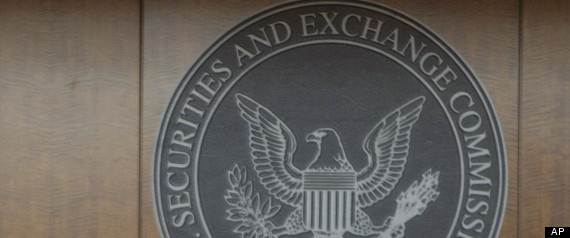WASHINGTON, July 22 (Reuters) - U.S. Senators are planning to introduce a bipartisan bill on Monday to give the country's securities regulator the authority to seek tougher fines for alleged Wall Street criminals.
The bill, sponsored by Rhode Island Democrat Jack Reed and Iowa Republican Chuck Grassley, would boost the penalties that the U.S. Securities and Exchange Commission can seek from firms and individuals accused of wrongdoing and triple the cap on funds the agency can seek from repeat offenders.
"If a fine is just decimal dust for a Wall Street firm, that's not a deterrent," Grassley said in a statement. "A penalty should mean something."
The bill comes only months after SEC Chairwoman Mary Schapiro asked Congress to boost the agency's firepower, after a federal judge in New York tossed out two SEC settlements over paltry penalties.
On the same November day that Schapiro spelled out her legislative wish-list to Congress, U.S. District Judge Jed Rakoff threw out the SEC's proposed $285 million settlement with Citigroup Inc, calling the monetary fine "pocket change." He also said investors were being "short-changed."
The SEC had alleged investors lost $700 million from the bad bets, while Citigroup had planned to give up $160 million in ill-gotten profit.
The SEC is still in the process of appealing the ruling.
In 2009, the same judge also rejected a proposed settlement with Bank of America Corp until the two parties agreed to raise the figure.
President Barack Obama echoed Schapiro's concerns in December, during a campaign style speech in Kansas, where he said he'd call for legislation to make "penalties count."
Grassley and Reed's legislation would hew closely to what Schapiro requested.
The SEC can currently penalize individuals up to $150,000 per violation and up to $725,000 per entity. Under the bill, those numbers would go up to $1 million and $10 million, respectively.
It would also triple the penalty cap for repeat offenders who have been convicted of securities fraud within the past five years. The agency would also have the power to assess the penalties in-house without having to go to fedearl court, a change from current law.
Crucially, the SEC could also seek three times the amount of ill-gotten gains or investor losses.
In a recent SEC settlement cited by the Senators, former Bear Stears hedge fund managers were forced to pay civil penalties totaling about $1 million, after being indicted for defrauding investors out of $1.6 billion.
Original Article
Source: huffington post
Author: Sarah N. Lynch and Alexandra Alper
The bill, sponsored by Rhode Island Democrat Jack Reed and Iowa Republican Chuck Grassley, would boost the penalties that the U.S. Securities and Exchange Commission can seek from firms and individuals accused of wrongdoing and triple the cap on funds the agency can seek from repeat offenders.
"If a fine is just decimal dust for a Wall Street firm, that's not a deterrent," Grassley said in a statement. "A penalty should mean something."
The bill comes only months after SEC Chairwoman Mary Schapiro asked Congress to boost the agency's firepower, after a federal judge in New York tossed out two SEC settlements over paltry penalties.
On the same November day that Schapiro spelled out her legislative wish-list to Congress, U.S. District Judge Jed Rakoff threw out the SEC's proposed $285 million settlement with Citigroup Inc, calling the monetary fine "pocket change." He also said investors were being "short-changed."
The SEC had alleged investors lost $700 million from the bad bets, while Citigroup had planned to give up $160 million in ill-gotten profit.
The SEC is still in the process of appealing the ruling.
In 2009, the same judge also rejected a proposed settlement with Bank of America Corp until the two parties agreed to raise the figure.
President Barack Obama echoed Schapiro's concerns in December, during a campaign style speech in Kansas, where he said he'd call for legislation to make "penalties count."
Grassley and Reed's legislation would hew closely to what Schapiro requested.
The SEC can currently penalize individuals up to $150,000 per violation and up to $725,000 per entity. Under the bill, those numbers would go up to $1 million and $10 million, respectively.
It would also triple the penalty cap for repeat offenders who have been convicted of securities fraud within the past five years. The agency would also have the power to assess the penalties in-house without having to go to fedearl court, a change from current law.
Crucially, the SEC could also seek three times the amount of ill-gotten gains or investor losses.
In a recent SEC settlement cited by the Senators, former Bear Stears hedge fund managers were forced to pay civil penalties totaling about $1 million, after being indicted for defrauding investors out of $1.6 billion.
Original Article
Source: huffington post
Author: Sarah N. Lynch and Alexandra Alper

No comments:
Post a Comment